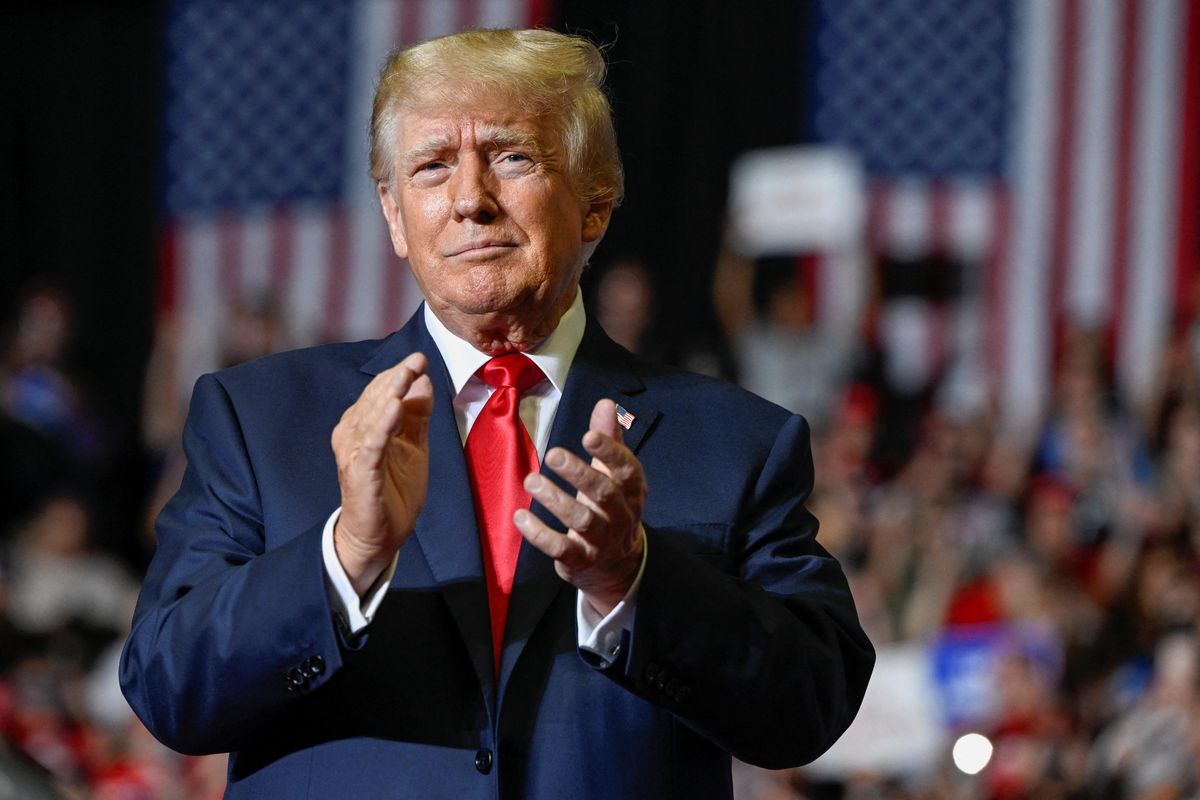On Google, the phrase “Trump is finished” now draws millions of hits. The former president’s political obituaries are everywhere these days, and it’s no mystery why.
- The GOP candidates most closely identified with Trump – Herschel Walker in Georgia, Mehmet Oz in Pennsylvania, Kari Lake in Arizona, and many others – lost in midterm elections. “Georgia may be remembered as the state that broke Trump once and for all,” tweeted Republican strategist Scott Jennings following a Senate runoff there earlier this week in which the Trump-backed candidate lost. Most of the highest-profile candidates who challenged or questioned the results of the 2020 presidential election got beat.
- Trump has taken enormous uncharacteristic heat from GOP leaders for dining last month with an infamous white nationalist and a man whose public antisemitic rants are now getting at least as much play as his music.
- Trump’s family business was finally convicted of criminal tax fraud this week.
- It will get worse: The report from the congressional committee on responsibility for the Jan. 6 Capitol riot will probably drop before Christmas.
- And because Trump is seen to have stumbled so many times in such a short period, his call for termination of select articles of the US Constitution and his immediate reinstatement as president drew rebukes this week even from important people in the Republican Party who’d normally prefer to just ignore him and go about the business of governance and politics.
Some look ahead to spring 2023 and see “Trump fading.”
Fat chance.
In the coming months, Donald Trump cannot and will not be ignored. Liberals – and a growing number of conservatives – who believe Trump will now go gentle into that good night of political oblivion have another thing coming.
The former president has already announced he’s again running for president. His flag is firmly planted, and there’s no guarantee that even a possible indictment in 2023 can keep him from the race. Nothing in the Constitution says an indicted person can’t run for president, and legal maneuvers to disqualify him might further stiffen the spines of his loyal supporters.
Trump has big advantages. He’s still the most famous political figure in the country, and many voters continue to roll their eyes at attacks on their man from politicians and (especially) from the media. His poll numbers have slipped in recent weeks, but he remains at the center of the Republican conversation.
The former president also has a well-known willingness to practice a slash-and-burn brand of politics that likely GOP rivals will want to escape. And what happens if, as we saw in GOP primaries in 2016, a large number of Republican contenders divide up the support of anti-Trump voters?
Even US politics experts like Eurasia Group’s Jon Lieber, who says “Trump is not the force he once was,” warn that the former president poses complex problems for Republican soon-to-be rivals. He will again launch sharp attacks on, and create punchy nicknames for, any rival he sees as a threat.
Lieber argues that Trump’s GOP opponents will then have three choices: ignore him, thank him for his historic service to the country, or go for his jugular with charges that he disrespected the Constitution, cost his party winnable seats over several years, and promoted health official Anthony Fauci. Most, Lieber predicts, “will employ some version of all three, and the most skilled … will be the [GOP] nominee.”
But there’s also the nuclear threat. Trump will warn throughout 2023 that he just might run for president as an independent. If he decides he can’t win the GOP nomination, other candidates, and all who want Republican victory in 2024, must take seriously the risk that Trump will pull large numbers of votes away from the party’s nominee.
To reestablish his importance in American politics and flex raw political power, he doesn’t have to win the White House, or even a single US state. Trump’s ability to win a sizable number of Republican votes in battleground states like Pennsylvania, Wisconsin, Michigan, Florida, Georgia, Arizona, Nevada, or North Carolina could well decide the 2024 election.
(For those who remember the 2000 US presidential election, imagine gadfly third-party candidate Ralph Nader as a velociraptor.)
Lieber warns that an independent Trump could even bring reliably red states like Ohio and Texas into play. If so, Lieber says, “Republicans are done for no matter how bad the economy is.”
The bottom line. Over the past seven years, Donald Trump has defied [political] death more often than a master magician, and no matter how ugly the headlines, a loyal core of voters make him a still-potent force in American politics.
For now, Trump’s upcoming strategic decisions remain the wildcard most likely to decide the 2024 US presidential election.






